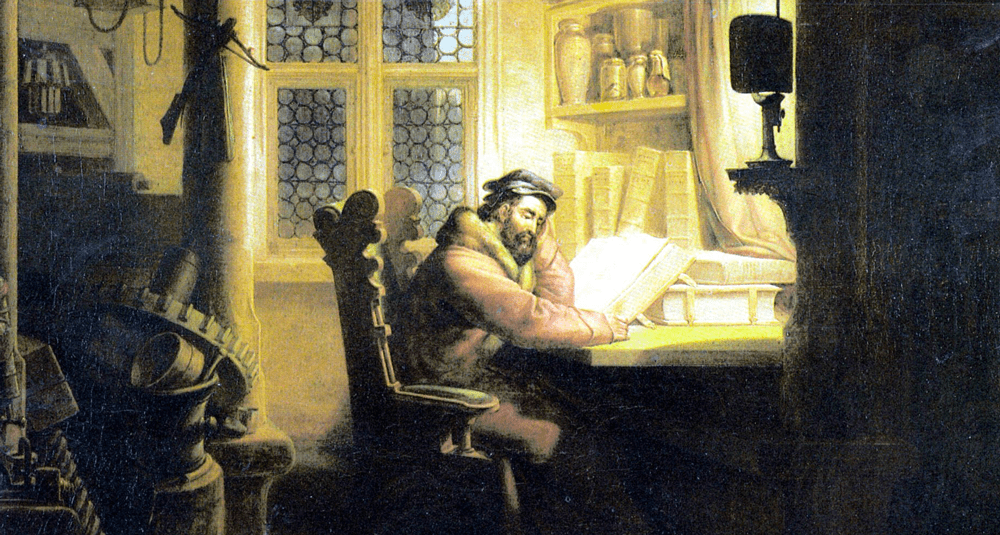Which famous play by Johann Wolfgang von Goethe was published in 1808?
Last Updated:
Faust, published in 1808 by Johann Wolfgang von Goethe, is one of the most emblematic works of German and world literature. Composed of two parts, the play explores profound themes such as the quest for knowledge, temptation, redemption and human duality. It features Dr. Heinrich Faust, a scholar dissatisfied with his life and knowledge, who makes a pact with the Devil, embodied by Mephistopheles.
The story begins with Faust, deeply frustrated by the limits of his knowledge and ability to understand the world. Despite a lifetime devoted to his studies, he feels empty and disillusioned. In this state of despair, he agrees to make a pact with Mephistopheles. This pact stipulates that the Devil will grant Faust all earthly pleasures and unlimited knowledge, but that in exchange, Mephistopheles will obtain his soul when Faust achieves ultimate satisfaction.
The first part of Faust, centered on humanity and the individual, focuses mainly on Faust’s quest to find meaning in his life. He is immersed in amorous adventures, including his tragic affair with Marguerite (or Gretchen), an innocent young woman whom he seduces and whose life is destroyed by the relationship. The first part of the play deals with the themes of guilt, desire and the consequences of human actions.
The second part of Faust, written several decades after the first and published after Goethe’s death, takes a more philosophical and cosmic perspective. This part explores metaphysical concepts, Faust’s relationship with nature and his desire to transcend human limitations. Faust seeks to realize great plans for humanity, including the creation of a utopian land. The play ends with Faust’s redemption, despite his pact with the devil, demonstrating Goethe’s belief in man’s ability to redeem himself through effort and spiritual aspiration.
Faust is much more than a simple story of an affair with the devil. It is a profound reflection on the human condition, the search for truth, the duality of good and evil, and the inner struggle between material and spiritual desires. Goethe uses the character of Faust to represent modern man, torn between the quest for meaning and the temptations of the world.
Goethe’s work is a masterpiece of world literature, influencing not only literature, but also philosophy, art and psychology. The idea of the Faustian pact has become a universal metaphor for the sacrifice of one’s values or soul for personal, often temporary gain, whether in terms of power, wealth or knowledge.
Faust, published in 1808, is a major play that tackles existential questions that are still relevant today. It illustrates the tension between human desires and the consequences of our choices, while offering a reflection on redemption and salvation. Goethe’s work on Faust lasted a lifetime, and its complexity makes it a fundamental work in the development of modern thought.
literature

Which famous play by Johann Wolfgang von Goethe was published in 1808?
Answer
Johann Wolfgang von Goethe's famous play Faust, written in 1808, is a two-part work exploring the pact between Faust and Mephistopheles.